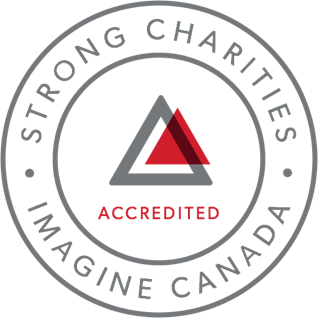What boards should be aware of and watching as we wrap up 2020 and look ahead to 2021
It goes without saying that COVID-19 brought with it significant challenges for boards of charitable and nonprofit organizations. While adjusting to the pandemic has been the main priority in 2020, there was also a wide range of additional or related topics vying for boards’ attention this year, from risk management to diversity and inclusion, and agile teams, to name a few. Review our summary list of what kept boards busy in 2020, and is still top of mind as we head into 2021.
1. Risk Management and Business Continuity Plans
While no board could be expected to have fully anticipated the speed, global scale, and economic impact of the COVID-19 pandemic, organizations that had a strong Risk Management System which included a Business Continuity Plan were definitely better prepared as the world changed virtually overnight. Once the initial shock and concern eased into a new normal, boards learned from their experience and took a closer look at how prepared and resilient their organizations were. This aspect of enterprise risk has been on the agenda this year as boards have paid more attention to their policies around Business Continuity Plans.
2. Beyond Diversity
Discussions about diversity evolved this year as Boards became more aware that diversity goes beyond just the metrics. Organizational culture and the importance of having diversity, inclusion, and equity embedded into the organization’s values and strategic plans became more evident in 2020. It is also expected that organizations now have anti-racism and anti-discrimination policies either at the Board or organizational level. This shift has challenged Boards to have deeper discussions about why and how diversity, inclusion, and equity benefit the performance of the Board and the organization. As more research and evidence of the advantages has emerged in 2020, the business case has become undeniable.
3. Cyber Security
Criminals realized early on that the pandemic was an opportunity to take advantage of the chaos. As organizations were forced to quickly set up remote connections for staff while managing a rapid increase in the volume of work, vulnerabilities emerged. The United Nations estimated there was a 350% increase in phishing websites reported in the first quarter of 2020. Boards have known for many years that cybercrime is a threat to all organizations, regardless of their size. The focus is on how prepared their organizations are for an attack and the measures that are in place in the event of a breach.
4. Digital Transformation
The rapid digital transformation of 2020 has allowed Boards to move beyond the defensive risk-based position focused on cyber security to an offensive stance alert to growth opportunities. Projects that might have taken years to test and approve in the past were fast-tracked in 2020 with great success. Organizations that had under-funded digital transformation initiatives in the past struggled to keep up with the rapid changes 2020 brought. Boards saw more clearly this year that creating a culture that supports and invests in innovation and digital technology as part of the organization’s strategy is key to survival and growth for the future.
5. Agile Teams
The term “agile” has moved from a techie start-up phenomena to the mainstream. For Boards that are used to hierarchical organization charts, command-and-control models, and project Gantt charts, the thinking behind how an agile mindset fits into the organizational structure can be a challenge. 2020 was a year in which “agility” was praised but an agile mindset goes further as it seeks to make organizations and their decisions more adaptive and responsive to an increasingly complex and fast-paced world. Boards are learning the importance of understanding this new business mindset and knowing the questions to ask when terms like agile, lean, True North, and OKRs (objectives and key results) are on the agenda.
6. Virtual Board Meetings
Boards discovered in 2020 that virtual meetings are really not that bad. They have the potential to be more than just a second-rate substitute for in-person meetings. Aside from cost savings, they improve attendance rates and have made meetings more accessible, especially for groups such as parents with young children, people with disabilities, and people from a wider geographic area. Virtual meetings can also lead to more focused agendas and allow for guest speakers that the organization might not have otherwise been able to attract.
The downside of virtual meetings is that they don’t make up for the benefits of face-to-face interaction, the ability to read body language and group dynamics, and the social relationship building that are all critical to optimal board function. While virtual board meetings are here to stay, they will not completely eliminate the need for some in-person meetings each year.
Has your organization or your board explored some (or all) of these topics in 2020? Building resilience is an ongoing effort, and wherever your organization may be in that journey, strengthening that muscle will only help prepare for the challenges 2021 may bring.
Guest contributions represent the personal opinions and insights of the authors and may not reflect the views or opinions of Imagine Canada.
Suanne Miedema is President of Miedema’s Board Consulting Inc. (www.miedemas.com) where she helps nonprofit boards improve their governance through best-in-class Board Policy Manuals and Board Assessments. With experience spanning both the for-profit and nonprofit sector she offers a practical, results-oriented service to her clients. Suanne is an Imagine Canada Certified Standards Program Coach and currently serves as a Director on four nonprofit boards.




